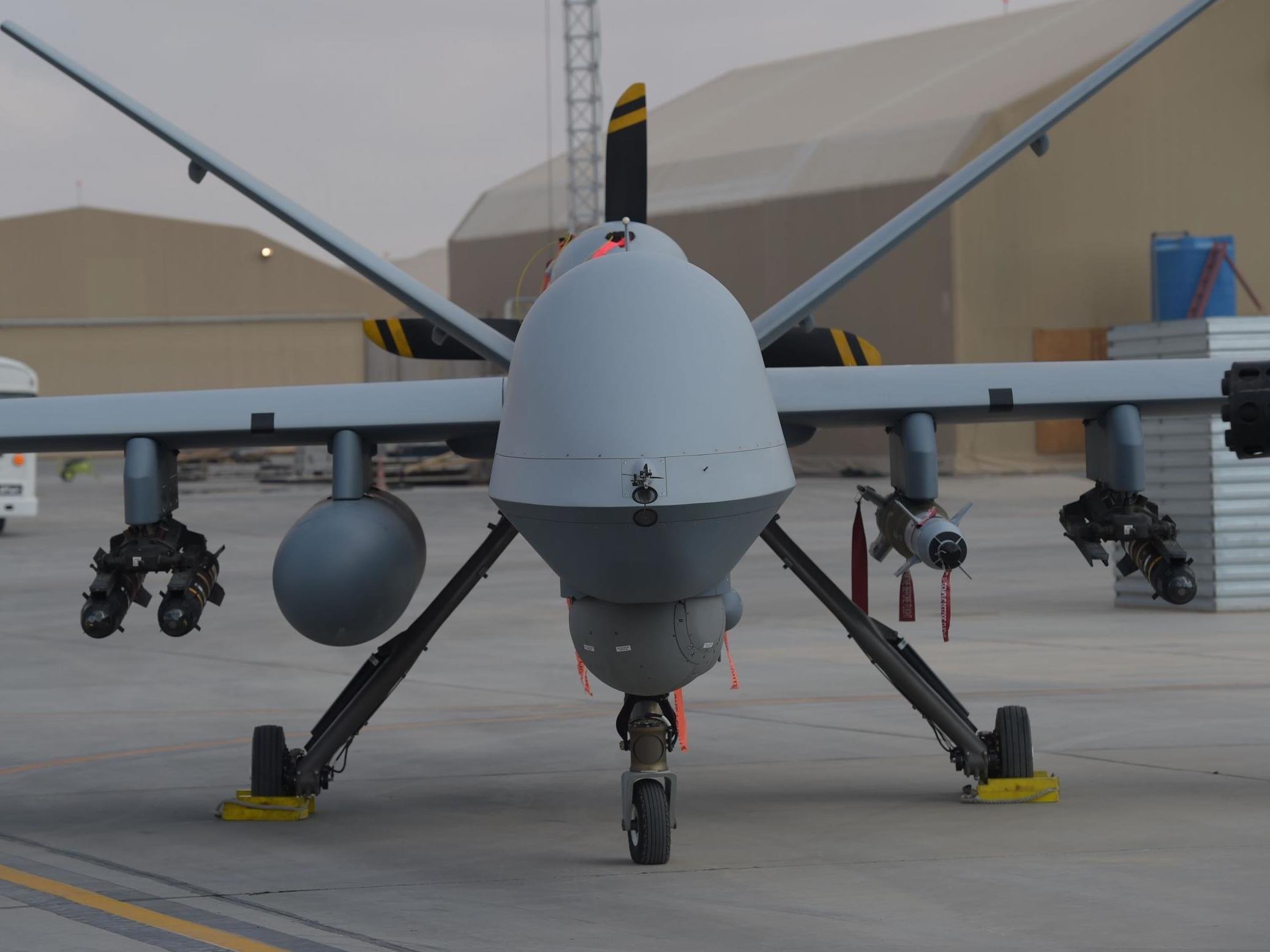US drone strike killed Afghan civilians including woman who had just given birth, officials say
Strike comes as civilian casualties in war-torn country at record high

A US drone strike on a car carrying a woman who had just given birth in southeastern Afghanistan left five people dead, including the mother, three of her relatives and the driver, Afghan officials and family members said Sunday.
The strike in the Alisher district of Khost province occurred either late Friday night or early Saturday, they said. The woman, Malana, 25, had given birth to a son, her second child, at home. But her health had deteriorated soon after and relatives had been taking her to a clinic. On their way home, their vehicle was hit.
After the strike, there was confusion about whether the newborn was among the victims. Later, it became clear that the baby had not been in the car. Turab Khan, a relative, said the boy was safe at home.
The US military command in Afghanistan confirmed a strike in Khost, saying that three Taliban fighters had been killed. But the military said the strike occurred Thursday.
“We are aware of the allegations of civilian casualties and working with local authorities to determine the veracity of these claims,” colonel Sonny Leggett, a military spokesman, said.
Gulmir Jan, a local tribal leader, said that hours after Malana had given birth, her health took a turn for the worse and her in-laws rushed her to the clinic. (Like most Afghans, the woman used one name.) A sister-in-law was among those in the car with her.
“Their vehicle was completely destroyed,” Mr Jan said.
Claims of civilian casualties by American or Afghan strikes often come from parts of the country that are hard to gain access to, and accounts are difficult to verify. In September, officials and residents in southern Helmand province said airstrikes had targeted a wedding convoy, killing 40 people. But military officials disputed that account and days later released information that said a senior leader of al-Qaeda had been killed in the strikes.
Civilian casualties reached a record in the third quarter of 2019, according to the United Nations, with 1,174 civilians killed and 3,139 others wounded. In its latest report, the United Nations said most of the casualties had been caused by the Taliban and other militants, but earlier in the year, it blamed Afghan and coalition forces for far more casualties than the Taliban.
Donald Trump, during an unannounced visit with US troops in Afghanistan last week, said that he had reopened peace negotiations with the Taliban, though the declaration appeared to have caught the militants by surprise.
He expressed the demand of the Afghan government for a cease-fire as a condition for peace talks, a major shift in US policy. In the deal they were near finalising in September, before Mr Trump abruptly called off talks, US diplomats had concluded that the chances of achieving a ceasefire before signing a withdrawal agreement was unrealistic.
The Taliban have continuously rejected calls for a ceasefire before a deal with the Americans, saying they would discuss the possibility only in talks with the Afghan side that would begin after any agreement with Americans.
The strike in Khost came at a time of widespread violence across the country, with the deadliest attacks occurring in the north and south. In northern Kunduz province, the Taliban attacked security outposts on the highway connecting Kunduz with Takhar province Sunday, killing 11 soldiers in several hours of fighting, said Safiullah Amiri, the deputy of the provincial council. The militants also pulled three police officers off a bus travelling from Kabul to northern Badakhshan province, executing them on the road in Kunduz.
In Faryab province, the Taliban captured a security outpost in the Ghorziwan district Saturday, killing seven members of the security forces and wounding two others.
In southern Helmand province, a convoy of Afghan security forces was struck by a roadside bomb in the Marjah district Saturday, killing the commander of a border regiment, general Zahir Gul Muqbil, and wounding a journalist, according to Omar Zwak, a spokesman for the governor of Helmand.
A group of journalists had been travelling with the regiment commander to cover a military operation to clear Marjah, which has been under siege by the Taliban for several years.
The New York Times
Join our commenting forum
Join thought-provoking conversations, follow other Independent readers and see their replies
Comments
Bookmark popover
Removed from bookmarks